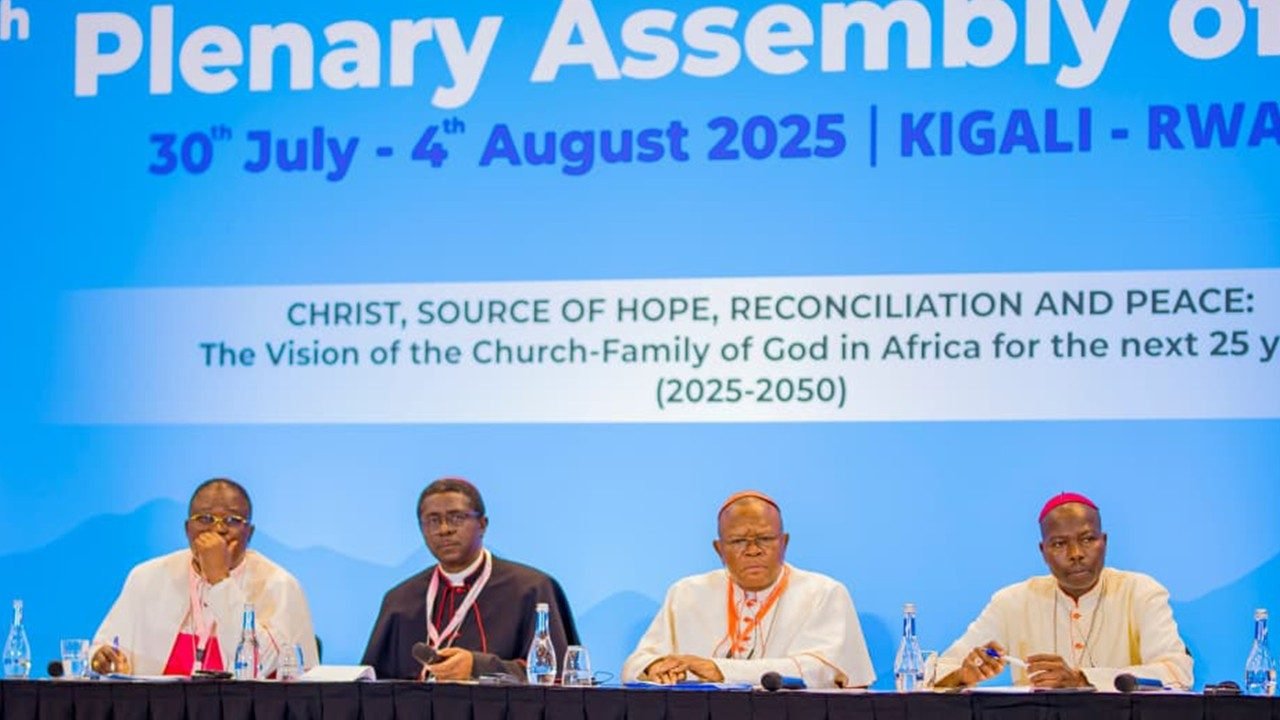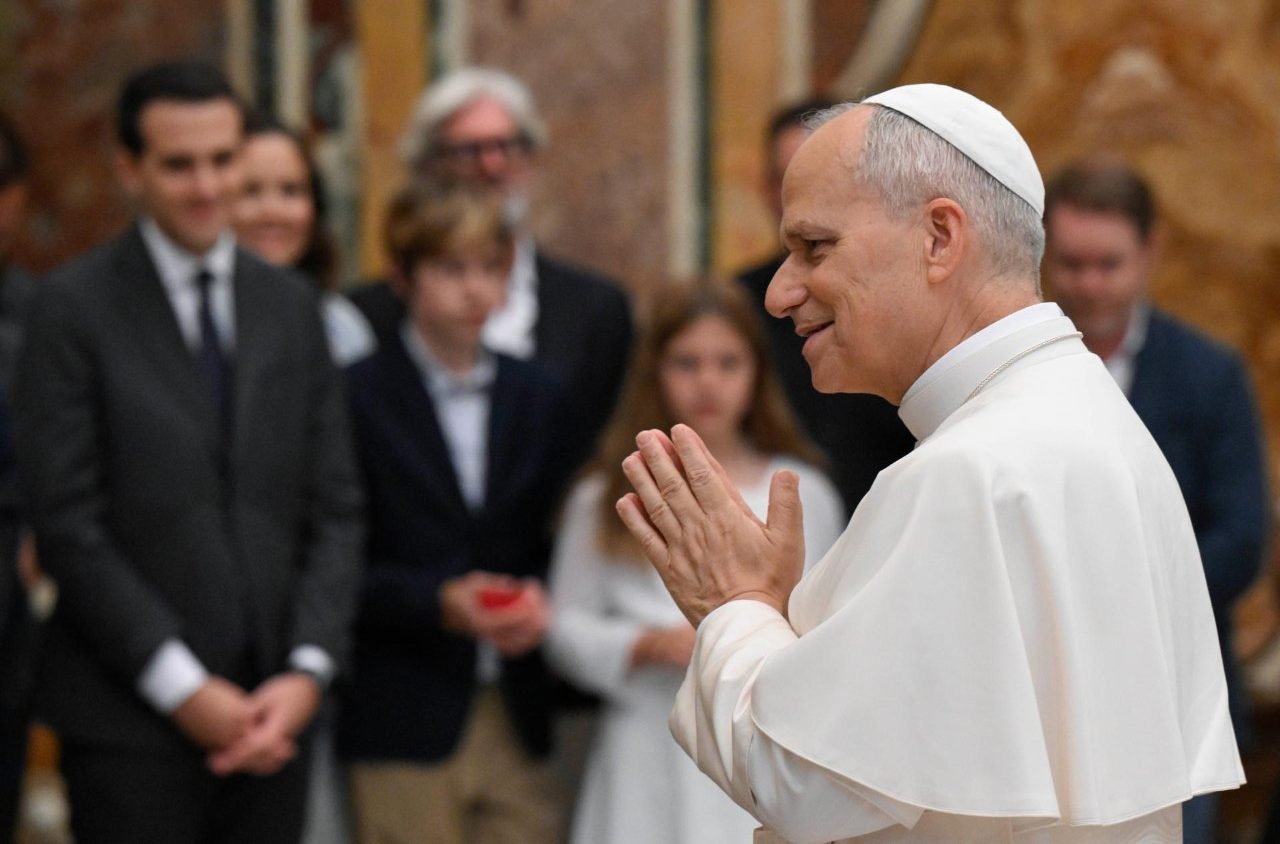During their ongoing Plenary Assembly at the Kigali Conference Centre, Bishops from across Africa convened under the theme “Christ, Source of Hope, Reconciliation, and Peace” for the 20th SECAM Plenary Assembly. The second day’s discussions focused on unpacking this central theme and exploring the continent’s long-term vision.
By Paul Samasumo – Kigali.
Leading the meeting and agenda of the day were the Second Vice President of SECAM, Bishop Stephen Dami Mamza of Nigeria’s Yola Diocese; Archbishop Andrew Nkea of Bamenda, Cameroon; and Bishop Jose Moko Ekanga of Idiofa Diocese in the Democratic Republic of Congo, a member of the Standing Committee and representative of the ACEAC region. Bishop Moko also delivered a presentation centred on the plenary theme.
Building on the past
Observers and some of the Bishops described SECAM’s initiative of a 25-year vision for the Church in Africa as a bold and courageous move—comparable perhaps to the African Church’s self-description as a “family of God.” This vision traces its roots back to the African Synod held in Rome in 1994, where Bishops proposed the model of the ‘Church in Africa as a family of God.’ This vision emphasised the values of care, solidarity, ubuntu and close relationships prevalent in African society. Pope Saint John Paul II later endorsed this vision in his post-synodal apostolic exhortation, Ecclesia in Africa.
A new journey begins
During this week’s Friday session, Bishops reflected on the planned 25-year journey from 2025 to 2050. They noted that the Church in Africa has asked itself three key questions: “Where are we today?”, “Where do we want to be in twenty-five years?”, and “How do we reach our destination?” To answer these, SECAM engaged in extensive consultation with all African episcopal conferences and select theologians. The outcomes are documented in ‘The Vision of the Church-Family of God in Africa for the Next 25 Years (2025-2050).’
The assembly resolved to commence implementing this strategic roadmap immediately, aiming for a Church rooted in the desire “to walk together, with courage, conviction, and communion.”
Africa’s Synod document on Polygamy
Later Friday afternoon, Bishops discussed the issue of polygamy as a challenge to Christian marriages in Africa. Archbishop Nkea and Cardinal Ambongo clarified that media reports suggesting that Bishops sought approval for polygamous unions or sought to change Church teaching on the Sacrament of Marriage were inaccurate. The Bishops reaffirmed that the Catholic Church teaches that marriage is a lifelong, exclusive, and faithful union between one man and one woman.
Their primary concern at the recent Synod was to emphasise the importance of pastoral care and accompaniment for those already in polygamous unions—whether Christians or non-baptised individuals seeking the faith. They highlighted that cultural and economic factors sometimes make it difficult for individuals in such unions to simply separate, especially affecting women and children. The Church’s synodal approach, they stressed, is one of inclusion, not exclusion. No one should be left behind.
Pastoral care for those in polygamous unions
In subsequent discussions, the assembly noted that, following the October 2024 Synod, a detailed document has been developed to guide pastoral accompaniment for those in polygamous unions. The document was collaboratively reviewed by African theologians and some Bishops, with input from the Dicastery for the Doctrine of the Faith, which offered valuable suggestions and contributions, according to Cardinal Ambongo.






